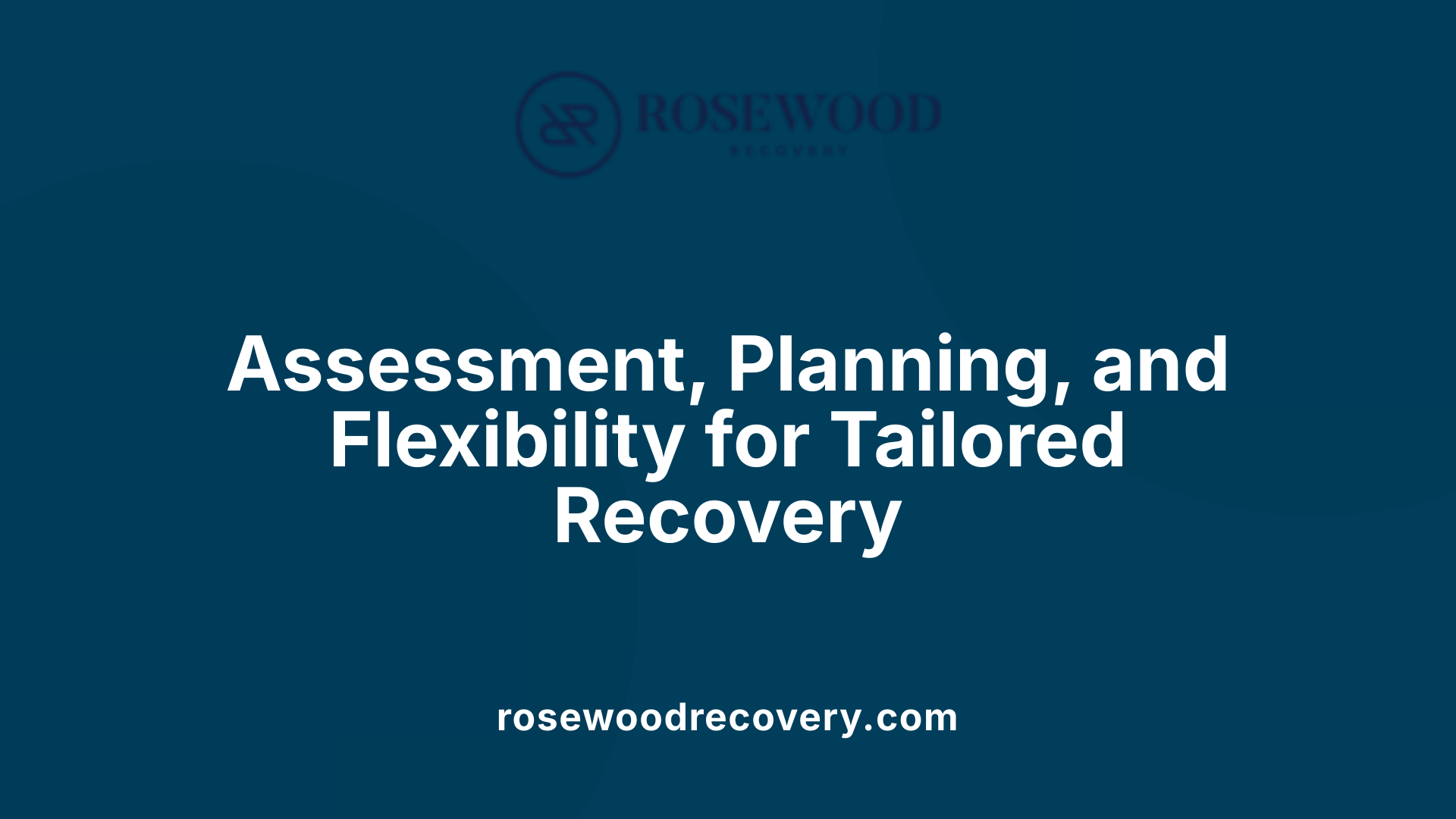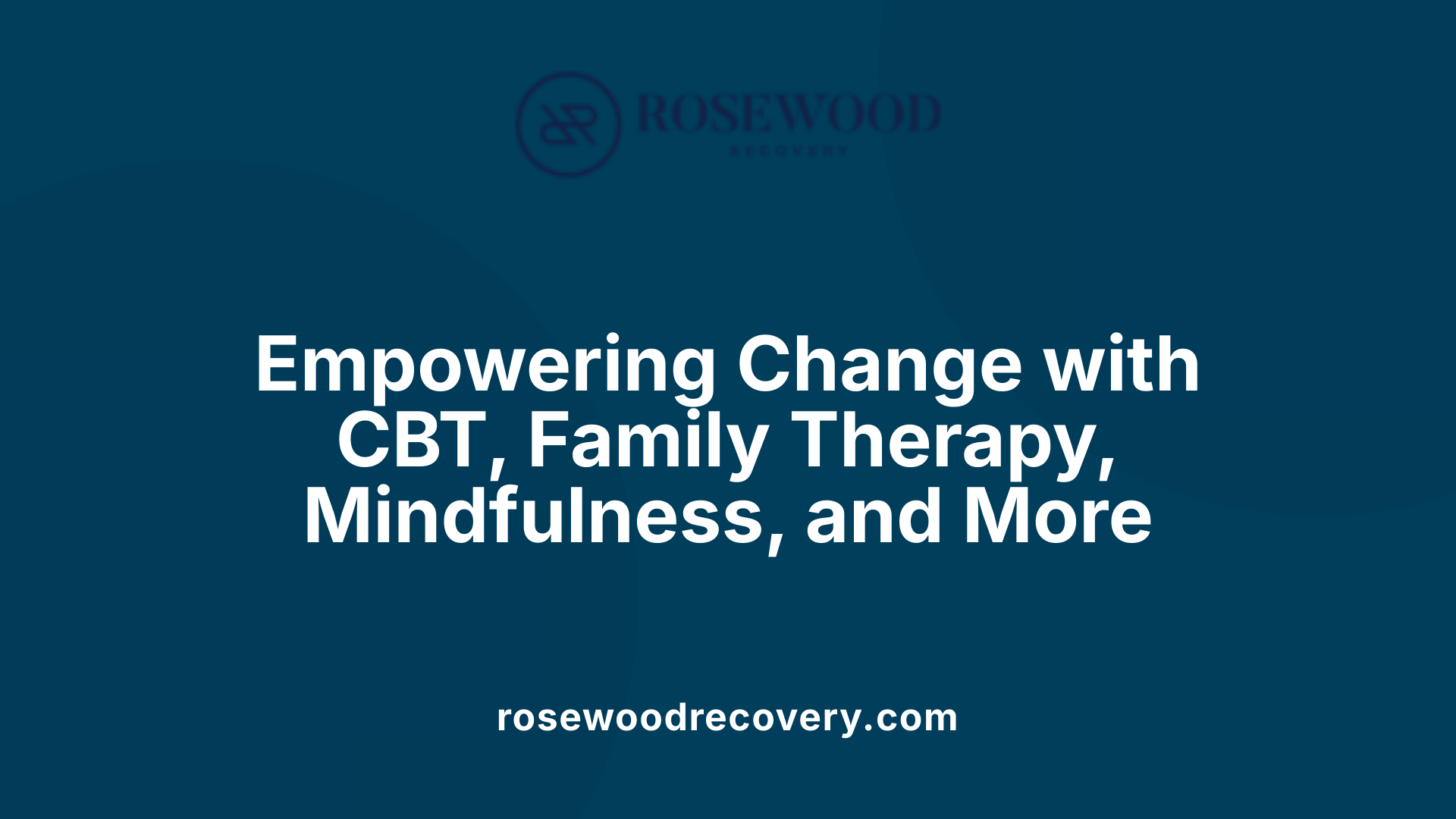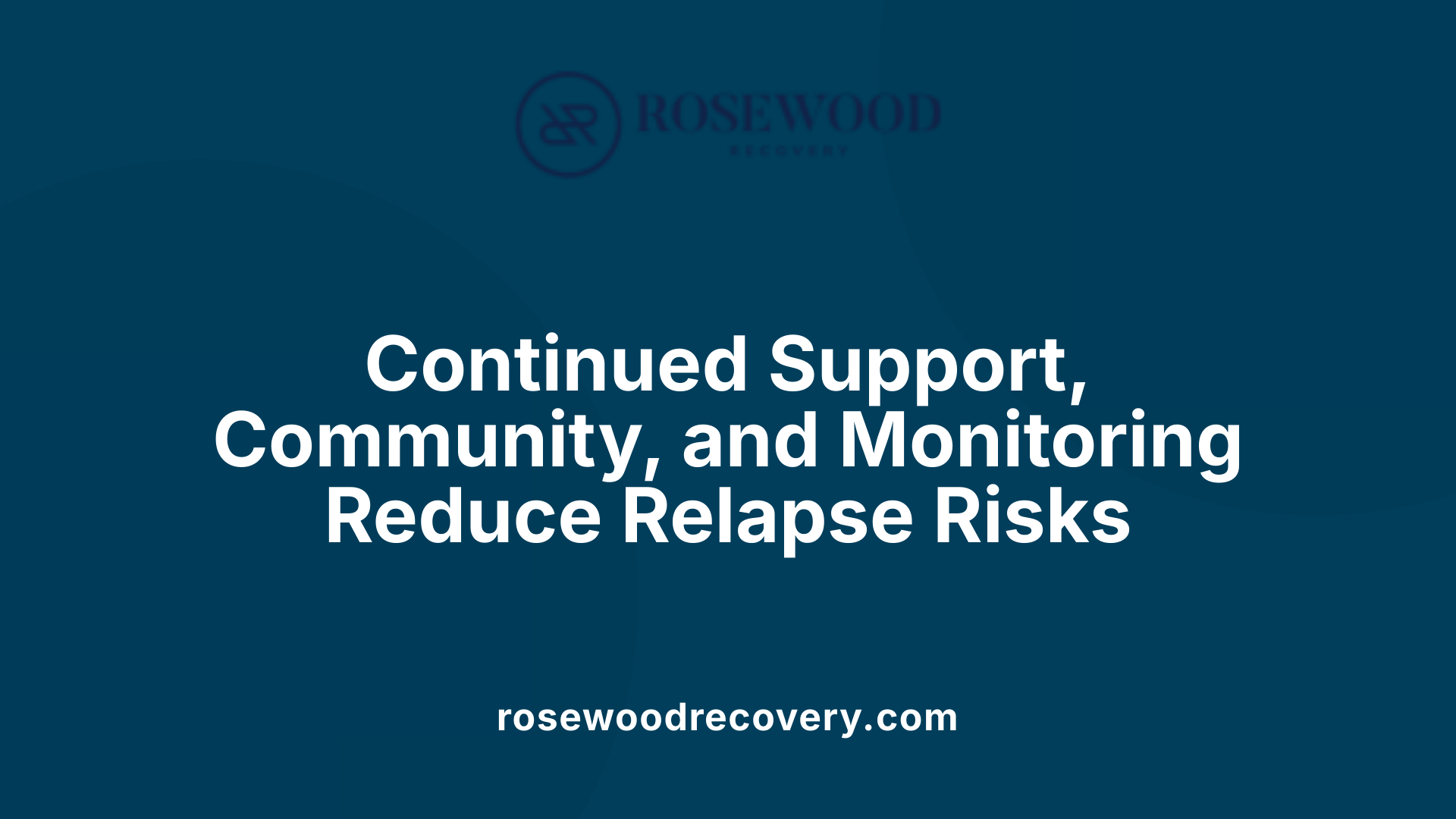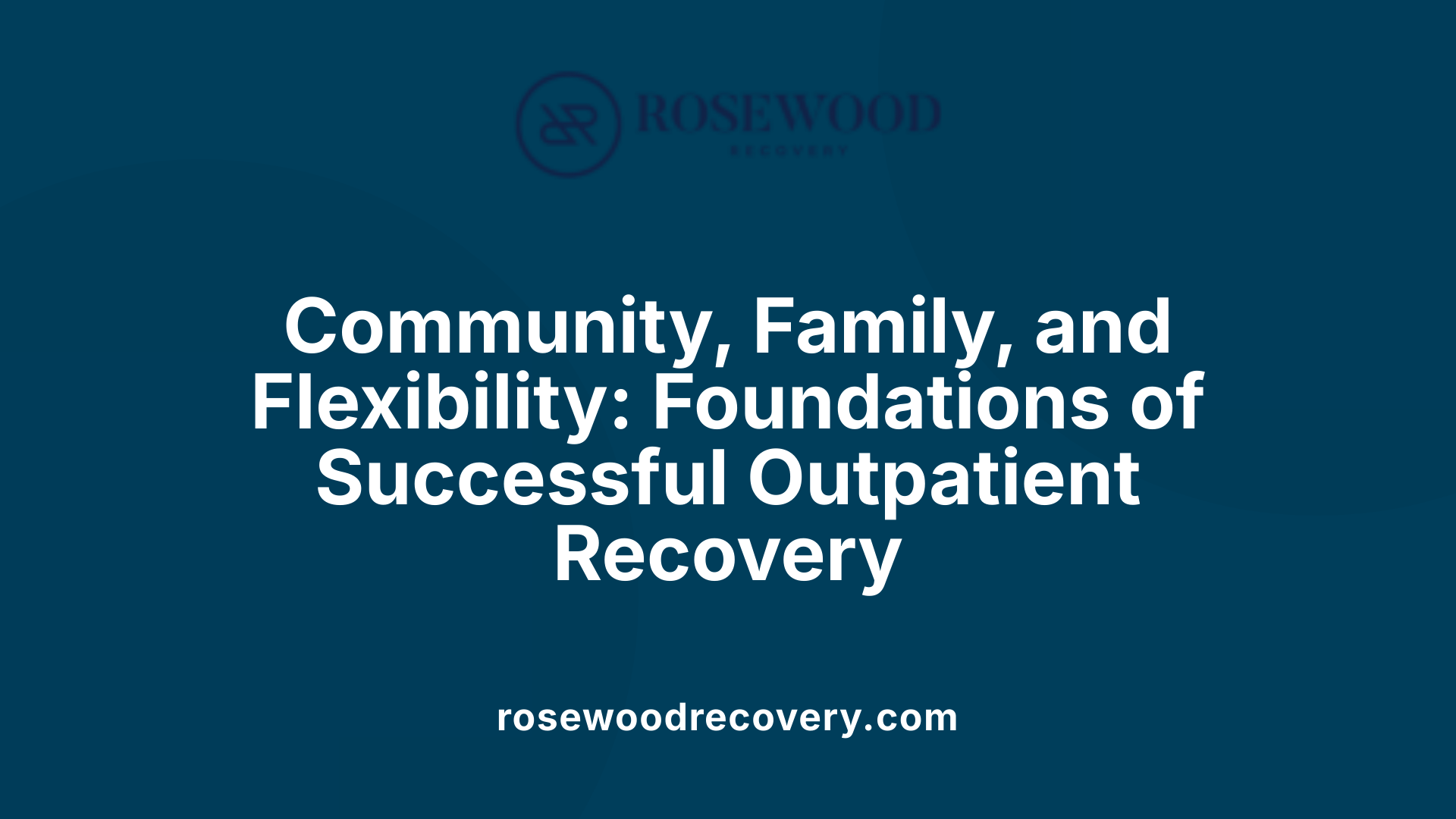Understanding the Role of Outpatient Programs in Emotional Transformation
Emotional transformation is a crucial aspect of recovery from substance abuse and mental health challenges. Outpatient programs offer comprehensive, flexible, and person-centered treatment approaches that empower individuals to regain control over their emotions and lives while maintaining their daily responsibilities. This article explores how outpatient programs support emotional growth, recovery, and long-term well-being by integrating evidence-based therapies, community support, and individualized care tailored to diverse needs.
Core Components of Comprehensive Outpatient Treatment Services

What Are the Key Components of Comprehensive Treatment Services for Substance Abuse, Mental Health Issues, and Various Forms of Addiction?
Comprehensive outpatient treatment services integrate multiple coordinated approaches designed to address the complex needs of individuals with substance use disorders, mental health challenges, and addiction. These components work collectively to treat medical, psychological, and social aspects for optimal recovery.
Individualized Therapy and Counseling
Individualized therapy is a cornerstone of outpatient care. Treatment begins with a thorough assessment to understand each person's unique history, co-occurring conditions, and social circumstances. This assessment guides the creation of personalized treatment plans that may include cognitive-behavioral therapy (CBT), dialectical behavior therapy (DBT), psychoeducation, and family counseling. Both individual and group therapy sessions foster emotional growth and peer support, addressing issues like relapse triggers, coping skills, and motivation.
Comprehensive Assessment and Treatment Planning
Clients undergo a comprehensive evaluation covering physical health, mental health, substance use patterns, and psychosocial factors. This evaluation informs integrated treatment plans emphasizing flexibility to accommodate work, school, and family commitments, thus maintaining daily routines while ensuring treatment progress.
Medication Management and Behavioral Therapies
Medication plays a critical role in managing co-occurring mental health disorders such as depression, anxiety, or bipolar disorder alongside addiction treatment. Outpatient services often include psychiatric support and medication management. Behavioral therapies complement pharmacological approaches by building skills in stress reduction, relapse prevention, and emotional regulation.
Specialized Services for Vulnerable Populations
Programs frequently offer tailored services for groups such as pregnant women, adolescents, veterans, and justice-involved individuals. These specialized tracks improve engagement, retention, and completion rates by addressing specific risks and needs within each population.
Relapse Prevention and Aftercare Planning
Ongoing support is vital for long-term sobriety. Treatment includes relapse prevention strategies like identifying personal triggers, developing coping techniques, establishing support systems, and participating in mutual-support groups. Aftercare planning ensures clients have continued access to resources such as alumni programs, follow-up therapy, and community supports after intensive phases conclude.
Together, these components deliver holistic, patient-centered outpatient treatment that fosters personal growth, resilience, and sustained recovery.
Integrated Treatment: Addressing Co-Occurring Disorders Within Outpatient Programs

How do integrated treatment programs benefit individuals with co-occurring substance abuse and mental health disorders?
Integrated outpatient programs for co-occurring substance use and mental health disorders provide coordinated, comprehensive care that simultaneously targets both conditions. This approach helps overcome the challenges of treating these intertwined issues separately, ensuring more effective symptom reduction and relapse prevention.
These programs utilize evidence-based, team-based interventions combining psychotherapy techniques like cognitive-behavioral therapy (CBT) and motivational interviewing with medication management. Such coordination allows providers to tailor treatments to the individual's unique needs and recovery phase.
Medication management alongside therapy facilitates stabilization of mental health symptoms while addressing substance cravings and withdrawal, improving treatment adherence. This integrated care model also involves family education and peer support, fostering sustained recovery and social connection.
Research shows that integrated outpatient programs reduce hospitalizations, arrests, and homelessness among participants by improving coping strategies and emotional regulation. Patients experience enhanced social and economic well-being and overall quality of life due to this holistic focus on mental health and substance use disorder recovery.
By centralizing services in a flexible, real-world setting, integrated outpatient treatment enables continuous engagement and long-term support essential for managing complex dual diagnoses and maintaining sobriety.
Therapeutic Approaches Promoting Emotional Growth in Outpatient Settings

What types of therapies are commonly used in the treatment of addiction and mental health issues?
Outpatient programs for addiction and mental health typically incorporate a variety of therapeutic approaches tailored to individual needs. Cognitive-behavioral therapy (CBT) is a cornerstone, helping clients recognize negative thought patterns and develop skills to prevent relapse. This technique empowers individuals to manage triggers and cope with cravings effectively.
Motivational interviewing (MI) and motivational enhancement therapy (MET) are often used to build motivation and readiness for change. These client-centered approaches enhance engagement by focusing on personal goals and self-efficacy.
Family and group therapy play essential roles in outpatient care. Group therapy fosters peer connections and reduces isolation, while family therapy improves communication and support systems, which are crucial for sustained recovery.
Medication-assisted treatment (MAT) combines medication with behavioral therapies, addressing withdrawal symptoms and reducing cravings, especially effective for opioid and alcohol use disorders.
Holistic and complementary therapies such as mindfulness practices and art therapy are increasingly integrated into outpatient programs. They support emotional regulation, stress reduction, and personal growth by promoting relaxation and creative expression.
Together, these therapeutic modalities provide comprehensive support, enhancing emotional growth in outpatient settings and increasing the likelihood of long-term recovery.
The Crucial Role of Aftercare and Ongoing Support in Sustaining Recovery

How important is aftercare and support following initial treatment for substance abuse and addiction?
Aftercare and ongoing support play a vital role in maintaining long-term sobriety after initial substance use disorder treatment. They provide continuous therapeutic care, including counseling sessions and participation in support groups, which help individuals manage psychological challenges and prevent relapse triggers.
What roles do counseling, support groups, and structured approaches play in aftercare?
Counseling offers a space for individuals to address underlying emotional issues linked to addiction. Support groups create networks of peer understanding, reducing isolation and reinforcing healthy behaviors. Structured aftercare methods, such as the T.E.A.M. model, incorporate ongoing assessments and personalized support plans to address evolving recovery needs.
How do community resources and sober living environments support recovery?
Community-based resources, including sober living homes and peer support organizations, provide stable environments that promote accountability and peer reinforcement. These connections foster social support outside formal treatment settings, encouraging continuous engagement in recovery-oriented lifestyles.
In what ways does ongoing monitoring reduce relapse risk?
Ongoing monitoring through recovery management checkups helps detect early warning signs of relapse. This proactive approach enables timely intervention and adjustment of treatment plans, ensuring sustained progress.
What are the emotional and psychological benefits of sustained engagement in aftercare?
Consistent involvement in aftercare enhances emotional resilience and self-efficacy. It helps rebuild healthy coping skills and strengthens motivation, contributing to psychological well-being and reducing the likelihood of setbacks.
Medications and Mental Health: Enhancing Recovery through Integrated Care
What role do medications play in the treatment of substance abuse and addiction?
Medications are a vital part of substance abuse treatment, helping to manage withdrawal symptoms, reduce cravings, and restore brain chemistry affected by addiction. Common FDA-approved medications include methadone, buprenorphine, and naltrexone for opioid use disorder, and acamprosate, disulfiram, and naltrexone for alcohol use disorder. These medications are often paired with counseling and behavioral therapies to offer a comprehensive approach that improves treatment retention and overall outcomes.
Medications also support tobacco dependence treatment and can be lifesaving when used as overdose reversal agents, such as naloxone. By integrating medication-assisted treatment (MAT) with psychosocial interventions, clients are better equipped to maintain sobriety and address the chronic nature of addiction.
How can mental health issues impact the treatment and recovery process for substance abuse?
Mental health conditions, such as depression, anxiety, and bipolar disorder, can complicate substance abuse treatment. These co-occurring disorders often exacerbate one another, making recovery more challenging. Individuals with dual diagnoses are at higher risk of relapse due to impaired motivation, decision-making, and coping skills.
Effective recovery requires integrated care that treats both mental health and substance use disorders simultaneously. This approach involves screening, assessment, and personalized treatment plans combining medications, behavioral therapies, and support services. Addressing trauma, stress, and other environmental factors also plays a crucial role.
Why is integrated care important for co-occurring conditions?
Integrated care coordinates treatment for both addiction and mental health issues within the same program, improving communication among providers and ensuring consistent support. This holistic system reduces the risk of fragmented care and supports long-term recovery by addressing all aspects of a client’s health.
How do medications enhance treatment retention and outcomes?
Medications help stabilize clients during withdrawal and reduce the discomfort that might otherwise lead to dropout. By minimizing cravings and preventing relapse, medication-assisted treatments improve engagement in therapy and overall treatment adherence. This synergy of medication and behavioral support strengthens the chances of sustained recovery and a better quality of life.
Overall, employing medications alongside mental health treatment within outpatient programs fosters a supportive, effective environment for clients to achieve lasting recovery.
Flexibility, Community, and Family: Pillars Supporting Emotional Transformation in Outpatient Care

How does flexible scheduling support individuals in outpatient treatment?
Outpatient programs provide flexible scheduling that allows clients to maintain their everyday responsibilities such as work, school, and family commitments. This flexibility helps individuals engage consistently in treatment without disrupting their daily routines, making recovery more manageable and sustainable.
In what ways does community support enhance recovery in outpatient settings?
Group therapy sessions offer vital peer connections, creating a supportive and non-judgmental environment. These group interactions reduce feelings of isolation and foster shared experiences, which strengthen motivation and resilience throughout recovery.
What role does family involvement play in outpatient care?
Family psychoeducation and therapy sessions help repair communication, rebuild trust, and create a supportive home environment conducive to recovery. Including family members in treatment improves treatment success and helps clients manage relapse risks more effectively.
Why are outpatient programs considered cost-effective?
Outpatient care reduces the financial burden associated with residential treatment by eliminating costs tied to 24/7 medical supervision and accommodations. This affordability increases access to care while maintaining high-quality, individualized treatment.
How do telehealth and mobile health services improve outpatient treatment?
Telehealth eliminates transportation barriers by offering virtual therapy sessions, increasing engagement and accessibility. Mobile health clinics extend outreach, particularly in rural areas, by providing screening, medication management, and referrals, making care more convenient and equitable.
How does continuity of care empower clients in outpatient treatment?
Ongoing access to aftercare services, including follow-up therapy and alumni groups, supports long-term sobriety and personal growth. These continuous supports foster resilience, self-efficacy, and emotional transformation, ultimately enhancing the recovery journey.
The Path Forward: Empowering Emotional Transformation Through Outpatient Care
Outpatient programs provide a vital avenue for emotional transformation by offering structured, evidence-based treatment that integrates individual needs, community resources, and family involvement. Their flexibility enables clients to engage fully in recovery while maintaining life’s responsibilities, fostering resilience and self-efficacy. As comprehensive care models evolve, the incorporation of integrated approaches for co-occurring disorders, medication management, and ongoing support ensures that clients receive holistic treatment addressing both mental health and substance use challenges. With continued innovation, including telehealth and community-based services, outpatient programs stand as a cost-effective, empowering solution that supports lasting recovery and emotional growth.
References
- CLINICAL ISSUES IN INTENSIVE OUTPATIENT ...
- 7 Key Advantages of Outpatient Programs for Recovery
- How Outpatient Substance Use Treatment Can Help
- How Intensive Outpatient Programs Transform Mental Health
- What is Outpatient Mental Health Treatment?
- Transforming Mental Health And Addiction Services
- The Top 10 Benefits of Outpatient Alcohol and Substance ...
- Adult Substance Use Services
- FindTreatment.gov: Home
- Chapter 5—Specialized Substance Abuse Treatment Programs

.jpeg)
.jpeg)

